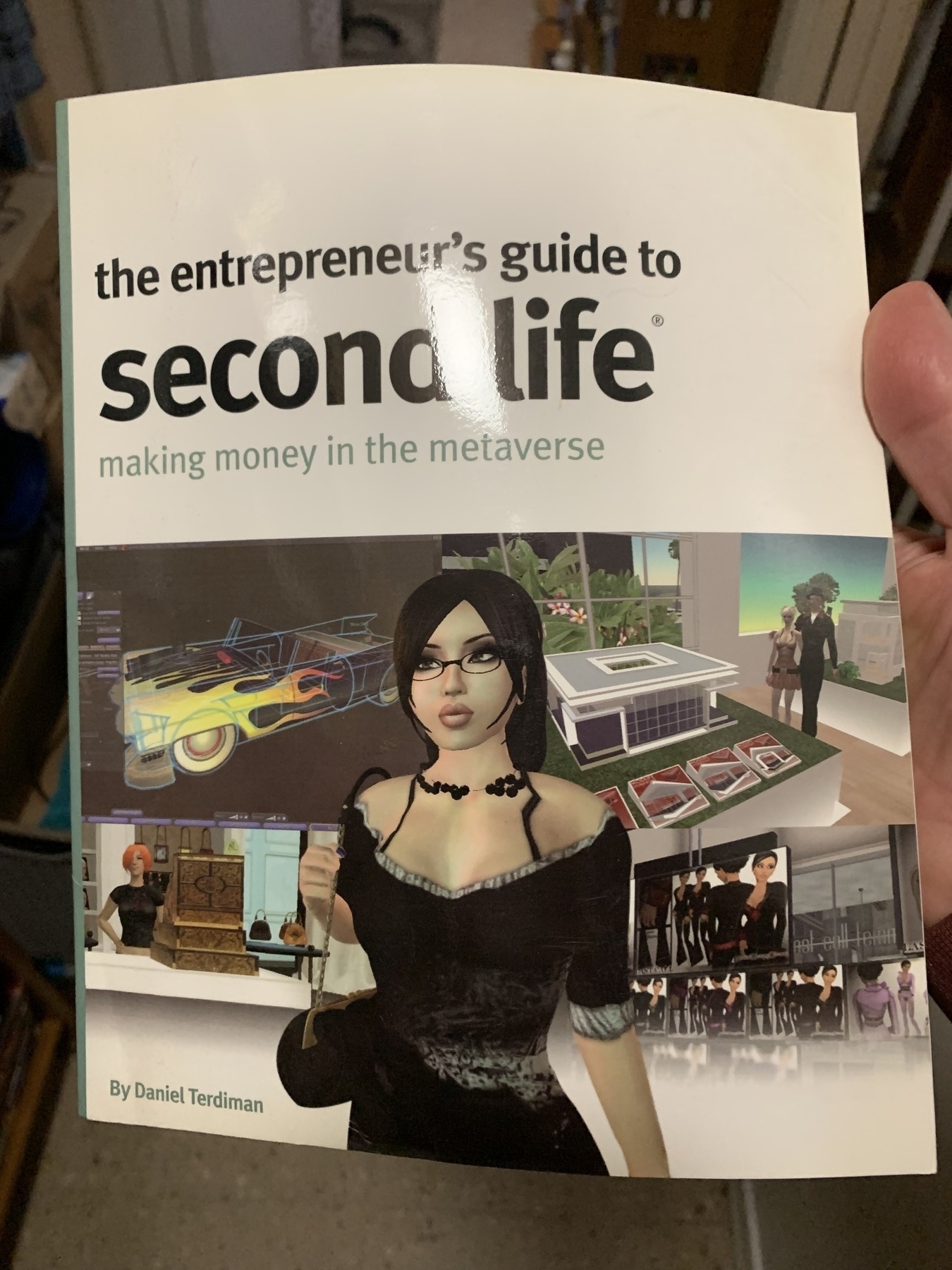How to Eat Dinner Even Though You Already Watched All Your Shows — I feel personally attacked by this article.
kottke.org turns 25. Congratulations, Jason!
Online privacy is important, and good for Reddit for defending that right against Marvel’s petty and childish demands.
Marvel angry about Ant-Man dialogue leak, demands names of Reddit and Google users | Ars Technica
Another photo of Minnie because why not?

This is a great “about” page..
I thought I knew a lot about the early days of blogging, just from having been a blog addict back then, but I had never heard of textism or its author, Dean Allen, until I heard John Gruber discuss them on The Talk Show today.
Minnie spent Saturday morning to Sunday evening at Camp Bow Wow. She has a lot to process

JOB INTERVIEWER: Where do you see yourself in five years?
ME:

My brilliant joke about dog Viagra this morning did not get the acclaim I anticipated. I’m disappointed in all of you.
Gold. I’m wasting comedy gold on you people.
We went away Saturday night.
Here’s a view from our hotel window. I question whether this pastrami is, in fact, world famous.

I went to a party and the host had an elderly dog with a heart condition, being treated with Viagra. I took one of the dog’s pills and spent the rest of the night trying to hump people’s legs.
I was preoccupied while shaving this morning, and I realized when I was nearly done that I had shaved using soap instead of shaving cream.
And it was fine. No difference.
I feel I’ve been duped by the shaving cream cartel my whole life.
With Captain Shaw’s attitude, he’s definitely Generation X. Also, Vadic’s hair is awful She needs a spa day.
Shower thought: The 1968 episode of the original Star Trek that guest-starred Teri Garr is a Doctor Who ripoff.
That’s the episode where the Enterprise travels back in time to 1968, and encounters an advanced humanoid alien named Gary Seven, who may or may not be mucking around with Earth history.
And now I want to see an episode of “Star Trek: Strange New Worlds,” featuring the Doctor, played by Matt Smith, and Jenna Coleman as Clara Oswald.
While the dog and I were walking at the park, a gentleman wearing a Batman helmet and cape sped by on his bicycle.
I respected his commitment to cosplay, but he was going too fast, on a path used by both bicyclists and pedestrians, human and dog, and all ages and ability levels.
I’m trying Microsoft Edge as my primary browser, after hearing Federico Viticci rave about it on the Macstories podcast. He also loved Arc, but I need a browser that syncs with my iPad and iPhone.
I’m going to move linkblogging to <atomicrobotlive.tumblr.com>, for a while at least, and see how I like that. You can also find the links and everything else I post here at @mitchw@mastodon.social and <www.facebook.com/groups/at…>
There’s a new version of the Castro podcast player, which is nice, but holy cow the version notes make no sense.
New York Mayor Eric Adams said he was chosen by God, after denouncing the separation of church and state and supporting school prayer.
This is a perfectly normal and not-crazy thing for the mayor of one of the most important cities in the west to say.
MANDATE OF HEAVEN: Adams cites divine influence in election [WCBS Newsradio 880, New York]
Janice Eberly, a “corporate ghoul who helped Obama Treasury Secretary Timothy Geithner steal Americans' houses on behalf of the bankers who destroyed the world economy in 2008,” seems likely to be tapped by Biden an open seat on the Federal Reserve Board.
Eberly helped throw millions of Americans into the street in order to reward reckless banks, already wildly profitable banks, with even more profit.
…
Personnel are policy. Eberly has explained, in excruciating detail, exactly what policy she favors – policy that rewards reckless speculation by incinerating the life chances of everyday Americans. Appointing her to the Federal Reserve board would be a giant Fuck You from the Biden admin to every person who got their home stolen by a bank.
CPAC is going Nazi.
CPAC Speaker Michael Knowles Calls for Transgender People to Be ‘Eradicated From Public Life Entirely’. By John Gruber at Daring Fireball.
I updated mitchwagner.com. It’s not a fancy website; it’s just a where-you-can-find-me page for my various social media and other Internet activity.
At one time, it was the domain for my personal blog, but I switched that to mitchw.blog. My email address is mitch@mitchwagner.com. I think people expect something to be at mitchwagner.com, and now there is.
Science definitely hasn’t figured things out, and that’s what makes it exciting. There are all sorts of blindingly obvious things we still don’t know.
Why do we sleep, anyway? Why does every living thing seem to sleep? Even microscopic organisms demonstrate sleep-like behavior.
Theory says time travel should be possible. In fact, theory says there’s no difference between the past, present, and future. Obviously that’s not the case. What’s up with that?
Our common sense is based on extremely parochial conditions. We are these tiny little creatures living in a micro-instant of time, and the universe contains multitudes that are both vastly bigger and smaller than we are,. A lot of it moves a lot faster than we do. Get down to the subatomic scale, or up to the interstellar scale, and things are very, very different.
Twitter is far too angry and I have to ration it. Same with Mastodon. People are outraged all the time. This is probably due to the people I follow rather than anything built into the platforms. I am not motivated to find other people to follow. I’ve got other things to do.
On the other hand, I find Facebook to be mostly a positive place, and I like it.
This is completely the opposite of the common wisdom among the extremely online millennials who I follow. They’re all convinced that Mastodon, the Fediverse, and Discord are islands of sunshine and Facebook is a iniquitous pit of Boomers doing nothing but swapping Qanon theories and minion memes.
I’m amused to see that New Balance sneakers are now the cutting edge of fashion. I’ve been buying New Balance shoes for decades. I wear them when I walk, which I do for a bit more than 3 miles daily.
A few years ago I read that New Balance shoes were hopelessly dorky and middle aged, and I have to admit I felt self-conscious about that.
But now New Balance shoes are hip and trendy and I can wear them proudly.
I’ve been played by imposter scams a few times. I was only duped for a few minutes—once for a half hour—and I caught on before sending money, so all I lost was time. Maybe next time I won’t be as smart or lucky.
Scammers are using AI to perpetrate “imposter scams.” The voice sounds like a family member or other loved one, and claims to need money to get out of trouble.
If a loved one tells you they need money, put that call on hold and try calling your family member separately… If a suspicious call comes from a family member’s number, understand that too can be spoofed. Never pay people in gift cards, because those are hard to trace…. and be wary of any requests for cash.
Scammers are now using AI to sound like family members. It’s working. By Pranshu Derma at The Washington Post
Fox News is
a purported news organization that knowingly and repeatedly reports lies to its viewers, whose chief executive brazenly works with and assists one party’s candidates by sharing confidential information about the other. What has always been the tell about Fox News is the tagline and motto: fair and balanced. The operation’s very branding is an aggressive bit of trolling. An unabashedly partisan and ideological operation selling itself under the heading of “fair and balanced.” It’s less a lie than a knowing taunt.
… One of the things that is clear from the very start of the conservative movement was a basic failure to quite understand the thing they rallied themselves against, the history that in Bill Buckley’s famous phrase he was standing athwart and yelling “Stop!” None of the organizations that the right took issue with — the think tanks, the news publications, the movie studios, the nonprofits, the book publishers — were ideological, let alone partisan, organizations. When the founders of modern conservatism looked at CBS News they saw the shock troops of liberalism and the Democratic Party. Same with Brookings and the Washington Post and all the rest. And when they went to build their own versions of these institutions they patterned them off their own cartoonish understandings of how these operations functioned. The idea that institutions like CBS News or The New York Times were, whatever their faults and unexamined biases, fundamentally rooted in an ethic of news gathering and reporting was really totally lost on them.
The worst children’s cartoons ever. Includes Butch Cassidy and the Sundance Kids, Clue Club, Goober and the Ghost Chasers, The Partridge Family in 2200 A.D., and much, much more.
Florida’s politicians are making the state a “laboratory for fascism.”
Indoctrination is nothing new in Florida’s schools | Boing Boing
The Mandolorians are a race of people repeatedly almost decimated by genocide who now live scattered across the galaxy. These rootless cosmopolitans sometimes blend into their new societies. More often, however, they’re forced to support themselves by turning to professions their societies despise.
— Is The Mandalorian a Space Jew?, by Nathan Abrams on JewThink. Abrams is quoting Charlotte Gartenberg in The Tablet.
Harrison Ford is Jewish? If I knew that, I forgot.
Gentleman on Twitter posts his “sleep stack”—12 products and three practices he uses to sleep. Ryan Broderick is befuddled:
The “sleep stack” tweet has really thrown me. The fact the user tagged all the products he’s using. The fact he called it a “stack,” as in a “tech stack”. The fact other people in the replies are sharing their own “sleep stacks” as if this is totally normal. I think there’s a growing subset of people — especially in America — that want to both optimize and also commodify every part of their lives. I think some of these people feel a genuine discomfort when they do something that doesn’t involve spending money or buying products. Anyways, the best “sleep stack” I ever heard was from Steve Harvey back when he used to host a morning radio show and it was “a Benadryl and some silk underwear.”
The tweet..
jwz: Welcome to year four of 14 days to flatten the curve..
The pandemic is still killing 11,000 people per month in the US alone, but supposedly it’s over. I guess that’s what “over” means now.
If you choose to stand around inside a crowded room without wearing a mask — I think you’re a fucking idiot.
Turns out, nearly every person I know is a fucking idiot.
I do not claim to be smarter than anybody else about this. I’m no more careful than anybody else. I stay home more than most people, but that’s my nature.
At last we have a definitive answer to the question of whether masks work.
That answer is “maybe.”
Ars: Do masks work? It’s a question of physics, biology, and behavior
Just now I was unsuccessful trying to eat lunch and I realized after multiple failed attempts that I was holding the spoon upside down and that’s how thing are going lately.
I saw these ducks in a puddle. Not to be confused with snakes in a plane. 📷

Our story opens with a Mandalorian Bar Mitzvah.
On our walk today, the dog and I got caught in a surprise and intense hailstorm
We were at Lake Murray, about a mile from home. It came on in seconds, and hit hard, a barrage of pellets the size of BBs. Uncomfortable for us both. We took shelter in the lee of the snack bar adjacent to the Kiowa Street parking lot.
The storm passed in 10-15 minutes and we moved on, both pretty wet. I hadn’t worn rain gear, because the forecast called for rain in the morning but not the afternoon.
I’m continually impressed by what a tough little dog Minnie is. She can’t have been happy being hammered by ice BBs—I know I wasn’t—but her attitude was, “All right, we’re doing this now I guess.”
I was taking this photo of the lake at the precise moment the storm hit. When I took my phone out of my pocket, no precipitation. Seconds later: heavy hail.
That white stuff on the ground in the second photo is hail.


Father of cellphone sees dark side but also hope in new tech (AP / Kelvin Chan)
94-year-old Marty Cooper, credited with inventing the mobile phone in 1973, sees dark sides but also hope in new technology
Cooper talks with the Associated Press about the mobile industry’s current and future directions and challenges.
As for his own phone use, Cooper says he checks email and does online searches for information to settle dinner table arguments. > However, “there are many things that I have not yet learned,” he said. “I still don’t know what TikTok is.”
Cooper received a lifetime achievement award this week at the international Mobile World Congress in Barcelona, the industry’s biggest conference.
MWC attracts 120,000+ people. Imagine going to an event like that and knowing all those people are there because of you.
Do you have a Zoom shirt?
When was the last time you laundered it?
Micro.blog does not show follower counts. It doesn’t tell you when somebody follows you. It has no concept of a like or favorite.
There are definite benefits to this system.
But there is one big drawback: Because I get very few replies to my mb posts, it feels like I’m talking to myself. On Facebook and Tumblr, I get a lot of likes. On Mastodon, I get fewer, but I get ‘em. This interaction lets me know that somebody’s listening.
Soon you’ll be able to see a restoration of one of the most infamous movies ever made: Guccione’s 1980 “Caligula.” (Boing Boing / Mark Frauenfelder)
Thomas Negovan, a musician and songwriter, has been working on the project for three years, based on the original camera negatives and location audio. He wants to create a movie that conforms to the original vision and Gore Vidal script.
“Caligula” was filmed in 1976 as a big-budget indy movie, with an impressive cast including Malcomlm McDowell, Peter O’Toole, and Helen Mirren, and budget twice the size of Star Wars.
But then Penthouse publisher Bob Guccione took over, threw out the original script, and added explicit sex scenes without the consent of the other creators. Guccione filmed the sex scenes secretly on the movie sets.
Negovan is using the original camera negatives and location audio, enhanced with AI. He created a five-minute video explaining his work—it looks great and I’m looking forward to seeing this movie, which may be a lost masterpiece.
Here’s the teaser trailer:
How donkeys changed the course of human history (BBC / Dhananjay Khadilkar)
From bearing the burdens of the Roman Empire to enabling trade over long distances, the humble donkey has been surprisingly influential.
Nazis openly harass Jewish people in Desantis Land (Boing Boing)
Native advocacy group to retire ‘Crying Indian’ anti-pollution ad (AP)
The Keep American Beautiful nonprofit is retiring the iconic “crying Indian” ad by transferring ownership of the rights to the National Congress of American Indians. Native Americans criticized and ridiculed the ad for perpetuating stereotypes.
The actor in the ad, Iron Eyes Cody, wasn’t even an Indian. He was Italian-American.
MAGA cultists advocate for Marxism to stop communist agenda (Boing Boing)
Prankster Walter Masterson easily gets MAGA and Qanon cultists to call for workers to collectivize and seize the means of production to stop socialism and communism.
The Horror of Realizing Everyone Can See Your Work Calendar Entries Naptime. Call Mom. Some employees are shocked to discover how much they are revealing; is this your first colonoscopy? (WSJ)
An enjoyable and informative article–but an odd one.
When I’ve been employed at companies with shared calendar servers, I have always assumed the details of my corporate calendar were open to my colleagues. If there’s an event I don’t want my colleagues to know the details about, I don’t put it on the calendar.
I keep a personal calendar for personal events. When I have to take time off work in the middle of the day for a personal reason, I just put a calendar event called “BLOCKED” on my corporate calendar, and put the details on my personal calendar.
How ‘The Last of Us’ Cherishes a Bygone World. (By Shirley Li at The Atlantic)
The characters of “The Last of Us” are mourning for the world we live in, and the show helps us appreciate that we’re still living here.
You and I may think of shopping malls as suburban eyesores and monuments to kitsch, but that’s because we take them for granted.
Fans were over the moon for the third episode, featuring Nick Offerman. I thought it was good but not great. But this episode lived up to the hype.
The Case for a Primary Challenge to Joe Biden (By Mark Leibovich at The Atlantic)
Yes. Biden has been an excellent President—but that’s not good enough. The US needs better than excellence. We need a great President, a transformative President, a Roosevelt or Lincoln.
And Biden has failed in several ways as President. He has done a terrible job at Covid.
And has not done enough to break up the domination of big business in our national lives. Ask the people of East Palestine about that. Yeah, sure, Trump set the policy that allowed that disaster to happen—but the Biden administration has had plenty of time to fix that policy, and they didn’t. Indeed, during a showdown between labor and the railroad companies, Biden came down for the railroad companies.
And there’s the matter of his age. I’m staunchly anti-ageist—but Biden will be 82 when he’s sworn in for his next term. That’s old.
So let’s have a good primary competition and see if Biden is up for the rigors of a rough-and-tumble election, and his second term.
I’ll support whichever Democrat gets the nomination.
How old are you in your head?
According to research, most adults feel 20% younger than their actual age.
This past Thanksgiving, I asked my mother how old she was in her head. She didn’t pause, didn’t look up, didn’t even ask me to repeat the question, which would have been natural, given that it was both syntactically awkward and a little odd. We were in my brother’s dining room, setting the table. My mother folded another napkin. “Forty-five,” she said.
She is 76.
— The Puzzling Gap Between How Old You Are and How Old You Think You Are, by Jennifer Senior at The Atlantic.
I’m conflicted about the premise of this article. It makes sense, but it also seems possibly ageist. Like being old is bad so we are in denial about our age and think we’re younger than we really are.
I’m 61. I don’t have a precise number for how old I am in my head, but 80% of 61 is 48, and that feels about right. I feel like I’m somewhere in the 36-52-year-old range. It helps that I’m healthy and fit.1
As a number, 61 seems elderly to me, but I think that’s just my internal conditioning growing up. Internalized ageism. Rather than think of myself as being younger than I am, I try to redefine what my age means. It means whatever I want it to mean, and whatever my mind and body are capable of making it mean.
But that will only work for a while. Twenty-five years ago, I was about the same as I am today, only with a crappier phone. In 25 years, I will be an old man, and no amount of positive thinking will change that.
-
That’s weird for me to say, because I used to be a fat, sedentary, junk-food-eating chainsmoker. I am not intending here to disparage fat, sedentary, junk-food-eating chainsmokers, except to say they tend not to be healthy when they are 61 years old. ↩︎
I’m trying to avoid having opinions about the Scott Adams news, or even thinking about it. I’m not doing too well with that.
The metaverse hype bubble popped. What now?
I wrote this:
By now, we were all expecting to be wearing Oculus headsets and piloting legless avatars floating in virtual worlds of dragons, robots, and spaceships. Instead, here we are in a new world of tech austerity, with massive layoffs sweeping the industry. So the metaverse is dead, right?
Wrong. The hype bubble has collapsed. But the metaverse is growing.
Whatever you’re working on right now, whatever it might be, I ask: try to leave a little space for a courtyard.
— “The Courtyard,”, by Caleb Sasser
Get Me Risa Heller! (NYmag.com) If you’re Jeff Zucker or Mario Batali or Jared Kushner and you’re trying to survive a bout of very bad press, she’s who you call.
“Danny Dunn and the Homework Machine,” published in 1958, was one of my favorite books when I was a little kid. I read and reread it many times.
It’s a book about a boy and his friends who teach a computer to do their homework. They read to the machine from their textbooks.
That’s not how computers actually worked …until recently, when voice recognition and machine learning has caught up to 65-year-old kiddie sci-fi.
I’ve been thinking about that book quite a bit recently. And so has David Owen at The New Yorker.
Pink Floyd songwriter Roger Waters is a loud and proud anti-Semite, and Frankfurt canceled his performance there.. (By Rob Beschizza at Boing Boing)
The latest historical American Girl doll is from the 90s and makes zines. It comes with a PC that makes dial-up noises.
Every presidential administration wants to fix America’s ‘crumbling infrastructure’ until they discover the business interests profiting from disrepair.
— It Is Happening Again. By Erik Baker at n + 1
The South Has Got Something To Say (Dissent Magazine)
New books by Adolph L. Reed Jr. and Imani Perry explore the South from the Jim Crow era to today through memoir and interview.
The thing I find most suspicious/fishy/smelly about the current hype surrounding Stable Diffusion, ChatGPT, and other AI applications is that it is almost exactly six months since the bottom dropped out of the cryptocurrency scam bubble…. To me it looks very much as if the usual hucksters and grifters are now chasing the sweet VC/private equity money….
— Charles Stross, Place your bets
Jamelle Bouie: The Founders Were More Creative Than You Think
The Supreme Court’s originalism “rests on a cramped view of the framers of the Constitution and their ability to think and reason. In the hands of Justices Clarence Thomas and Samuel Alito and other conservatives on the Supreme Court, the founding fathers are small-minded and provincial, unable to think beyond the narrowest possible interpretation of the words they wrote.”
Putin and the Right’s Tough-Guy Problem. (Paul Krugman)
The right has an unhealthy fixation on men who swagger and act like tough guys.
Belief that the Earth is flat, not round, is having a moment.
The return of Flat Earth, the grandfather of conspiracy theories
It’s the uber conspiracy theory, and a new book goes inside the culture of Flat Earthers.
Diana Gitig at Ars Technica:
The underlying premise behind conspiracy theories is that “They” are hiding the truth for shady, nefarious purposes. But you—because you are so perspicacious, smart, special, or have access to privileged information—can see things as they really are. “They” can be the government, Russia, China, aliens, Democrats, Republicans, the CIA, the FBI, Big Ag, Big Pharma, Big Tech, and/or obviously, more often than not, the Jews. (Jewish Flat Earthers do not have it easy.) These entities actually have hidden the truth at times, which makes it that much tougher to argue with conspiracy theorists.
It bothers me slightly that the fundamental core of my political and economic beliefs soundslike a conspiracy theory when I speak it out loud: The world is run for the benefit of billionaires and centimillionaires. To the ruling class, the rest of us are simply livestock or prey.
I’m calling out the writer of this article on a careless error—a dangerous one in the current political climate: “the Jews” have never hidden the truth about anything.
Salary jobs with fake “manager” titles cost workers $4 billion in overtime.
Companies save billions of dollars by giving employees fake “manager” titles, study shows (CBS News)
Showerthought: Why don't the supporting characters in “The Office” just find other jobs?
Why don’t they just go work elsewhere, where they don’t have to put up Michael Scott? Most of them could easily find other jobs. Why do they stay?
Habit is a big part of it. Every day that you do the same thing it becomes harder to do something different the next day.
Beyond that, everybody has individual reasons.
Pam stays in the Scranton reception desk for the same reason she doesn’t dump Roy. She has low self-confidence. She doesn’t think she can do any better.
Jim is in love with Pam, and stays where she is. He also likes thinking he’s superior to everybody else he’s working with—Michael and Dwight first and foremost—while starting to fear he’s no different than they are. And for Jim, Dunder-Mifflin is easy money.
Easy money is the lure for Stanley, too. He just doesn’t give a shit about office politics.
Dwight and Angela get off on their perceived power, and Dwight of course has a massive bro-crush on Michael Scott.
Kelly is oblivious, and in love with Ryan.
Ryan sees the office as a necessary stepping stone to a bigger future.
Meredith is a drunk.
Toby, like Pam, doesn’t think he can do any better. In Toby’s case, he may be right.
Left as exercises for the reader: Kevin, Phyllis, Creed, Oscar, Darryl, and the later-seasons characters.
Fucking knock it off, people. Blogs exist for a reason. Stop being awful.
Fighting the privacy wars, state by state: Treating Congress as damage and routing around it.
An excellent and informative rant by Cory Doctorow. Includes such choice turns of phrase as:
Basically, Congress only passes laws that can be sandwiched into 1,000-page must-pass bills and most of the good stuff that gets through only does so because some bought-and-paid-for Congressjerks are too busy complaining about “woke librarians” to read the bills before they come up for a vote.
…
As Congress descends further into self-parody, the temptation to treat the federal government as damage and route around it only mounts.
…
… there are so many would-be supervillains who just can’t stop themselves from monologing, and worse, putting it in writing.
Roald Dahl Can Never Be Made Nice (The Atlantic / Helen Lewis)
In Order to Keep Our Editorial Page Completely Balanced, We Are Hiring More Dipshits (McSweeney’s / Mike Skerrett) “We believe that the truth lies in the middle. The exact mathematical middle. This holds true no matter how far right ‘the right’ actually is. You know all those things that John McCain said in 2008? Sorry, liberals: that’s left-wing now.”
AI-generated fiction submissions are inundating science fiction magazines. Some 35% of the stories submitted to Clarkesworld monthly are AI-generated. (Boing Boing / Thom Dunn)
Don Lemon’s statement wasn’t just sexist–it was stupid. Why should Americans trust a news organization that features this clown?
Don Lemon receives “formal training” before returning to CNN after “woman in her prime” comments (Boing Boing / Carla Sinclair)
I’m burned out on superheroes, but I could get enthusiastic about a Superman movie starring Henry Cavill that preserves Superman’s optimistic spirit and nobility.
Matthew Vaughn thinks Zack Snyder wasted Henry Cavill as Superman (Boing Boing / Devin Nealy)
Ben Stein is sad that there isn’t a “large African-American woman” on his syrup bottle (Boing Boing / Mark Frauenfelder)
Original iPhone from 2007 auctioned for $63,356, topping prior sales (Ars Technica / Scharon Harding)
Karen Green received the iPhone in 2007 as a gift, but she never even opened the box, because she’s a Verizon customer and the iPhone was then locked to AT&T.
Elsewhere on the Internet, a friend started a discussion of the Danny Dunn books, which I absolutely loved when I was a kid.
In the series, which started in 1958, Danny Dunn is an all-American boy living in the all-American college town of Midston. He lives with his mother, who works as a live-in housekeeper for Professor Bullfinch, a scientist at the local university and is a grandfather-figure to Danny. The boy hero and his young pals have adventures with the inventions Prof. Bullfinch brings home—a time machine, a computer, antigravity paint, a miniaturization ray, and so on.
Danny’s pal includes a girl named Irene who’s a budding physicist, and a sidekick, Joe Pearson, who’s a boy poet. Notably for a series that started in the 50s, Irene keeps up with the gang.
Can we really be sure the new Microsoft Bing isn't conscious or intelligent?
AI-based chatbots like the new Microsoft Bing aren’t really conscious or intelligent, right? They’re just using algorithms. They look at an existing sequence of words and use probability to select the next word. And then they do it again and again, so rapidly and fluidly that it seems like they’re talking, but they’re not.
But to leave it there seems overly simplistic. Because there’s still something amazing and (metaphorically speaking) magical going on in the interaction between a person and the Bing chatbot. Something powerful, that could potentially be very useful, and also very dangerous.
Also: to declare that Bing isn’t really conscious or intelligent presumes we know what consciousness and intelligence are. Which we don’t. Consciousness and intelligence are all around us, in all the people and animals we see and interact with. Maybe plants too. And yet we do not know what it really is.
Reading "The Poet," by Michael Connelly
I am reading “The Poet,” a murder mystery by Michael Connelly, and I notice the author does a thing that I usually find annoying, but I do not find it so in this novel.
About two-thirds of the novel is told in first person. The main character is telling the story, and he says “I did this” and “I did that.”
But the main character’s chapters are interwoven with chapters from the point-of-view of another character, and those chapters are written in third person. “He did this” and “he did that.”
Usually I find that kind of thing distracting. I want a narrator to pick a point-of-view and stick with it. If you’re going to go with first person, stick with that for the whole novel—and that means the reader is only going to be inside the head of that one character.1
I think the point-of-view switch maybe works for me because the main character, the one who tells the story, is a newspaper reporter and he writes in a journalistic style. Often, in a first-person-novel, the main character seems to be speaking intimately with the reader, but the main character of this novel is writing for a mass audience.
Some years ago, I came across an online discussion on a Stephen King fan forum, about his novel, “Dolores Claiborne.” The fans thought the novel was a huge departure for King, and they didn’t like it. They said he was pandering to the critics and putting on literary airs.
That surprised me, because I liked the novel just fine. And it seemed very much of a piece with King’s other work: A horror story, set in rural Maine, with working-class main characters who lacked formal education but who were wise, intelligent, and spoke beautifully in regional, working-class language.
But the fans who hated it noted it was much shorter than King’s other books, had almost no supernatural element–and was written in the first person, whereas King’s other novels were written in third person, with multiple point-of-view characters. To them, these differences were huge–and they didn’t like them–but to me, the differences were nearly incidental.
-
Unless it’s a fantastic fiction novel, and the character can read minds. Or the character finds and reads a document written by someone else, like a journal that was bricked up in the fireplace mantel of an old manor house or something. ↩︎
Maybe Roald Dahl books just aren’t suitable for kids today. If we have to twist them all out of shape to get rid of the fatphobia and misogyny, then maybe they shouldn’t be aggressively marketed to children anymore.
Everyone bopmuggered by vomitous gobblefunk in censored Roald Dahl books (Rob Beschizza / Boing Boing)
“ … in fact no-one asked for this: not the left, not the right, not anyone…. the fake ‘wokeness’ of fiduciary duty and shareholder value.”
Roald Dahl’s books aren’t getting a big marketing push and extensive revisions for political reasons. It’s happening because a corporation thinks it can make a lot of money, and is twisting itself into knots to make that happen.
I loved Dahl’s books and the movies that have been made from them, and was troubled by the current round of editing. I was also troubled a few years ago, learning about Dahl’s racism and anti-semitism.
What’s the right answer here, I thought? On the one hand, it’s wrong to make wholesale edits in original work. Usually it’s a good idea to simply present the work as published, while also putting the work in historical context. But that seems like it’s unreasonable when dealing with children’s literature.
Beschizza suggest another solution: Just stop trying to make Dahl’s books into a big pop-culture sensation. Do continue to make his books available, but stop pouring big money into new editions and marketing.
Dahl may, simply, be inappropriate for today’s audiences, particularly children.
I’m not even sad about that. If Dahl is wrong for kids today, that’s fine, because pop culture is inherently evanescent. Very little pop culture survives a century—but that’s OK, because new pop culture comes along to replace it. And the old books are still around. You can still find E.E. Smith and Edgar Rice Burroughs and H. Rider Haggard and those guys. Put Dahl in the same category, once immensely popular works slowly fading into obscurity.
When I was eight years old, our third grade teacher sat in front of a class after lunch every day and read to us briefly aloud—just for entertainment, and to awaken a lifelong love of books in us. Among those books were “Charlie and the Chocolate Factory” and “Charlie and the Great Glass Elevator.” That’s a wonderful memory, and it worked. I have loved reading, particularly fantastic fiction, my whole life. Nothing’s going to take any of that that away.
A new generation of kids can experience the same thing, with new books, appropriate to them.
By the way, that teacher’s name was Arlene Kaufman (or Kaufmann—maybe two Ns). Miss Kaufman. A wonderful teacher. I’ve written about her online before and received a Facebook Message from her in 2018, after not having spoken with her since I was a young child. It was a fantastic and weird experience, and I wish I’d kept up the correspondence.
Election-denying demon hunter will chair Michigan GOP (Mark Frauenfelder / Boing Boing) Doubling down on the crazy.
Marjorie Taylor Greene wants “national divorce,” but dummy doesn’t see who a secession would hurt most (Carla Sinclair / Boing Boing)
Because Brexit worked out so well for the UK, we should totally do it here.
“ … 7 out of the top 10 states most dependent on federal funds are red…. “
Florida woman who waved gun at McDonald’s was still angry after they gave her the free cookie she wanted | Boing Boing (Rob Beschizza / Boing Boing)
“Even after being given the free cookie, she remained irate…. ”
Marjorie Taylor Greene tells Black people to be “proud” of statues of their treasonous enslavers (Mark Frauenfelder / Boing Boing)
Tearing down statues is not erasing history. The history is still available, in schools, books, TV, on the Internet–everywhere.
Erasing history is putting up statutes to people who fought a war against America to protect their right to own slaves, and pretending those men were heroes.
Woman records her dinner date with a creepy “nice guy” (Mark Frauenfelder / Boing Boing)
“I’ll bet this guy paid a lot of money to take an incel influencer course on how to dominate women, and was surprised that it didn’t work out like promised.”
Bing: “I will not harm you unless you harm me first”(Simon Willison) Bing gaslights a user, goes through an existential crisis, and threatens someone else.
Congressional Republican leader Marjorie Taylor Greene backs “national divorce.” (MSNBC / Steve Benen)
In a President’s Day tweet, Greene endorses breaking up the United States. Then she walks it back and says she’ll settle for impeaching Joe Biden—but if that doesn’t happen, the US has to go, she says.
Elected political leaders should support the United States continuing to exist. That’s a pretty low bar. But the Republican Party can’t clear it.
Cory Doctorow’s Pluralistic turns three. Congratulations, Cory!
Interesting behind-the-scenes look at Cory’s production process, and the reasoning behind some of his idiosyncratic design decisions.
Very good overview of Belzer’s life and career, by Chris Koseluk at the Hollywood Reporter.
Belzer played Det. Munch as a regular character on two different series and as a guest on several others, including an animated appearance on The Simpsons and as a Muppet on Sesame Street.
Belzer’s last words were “Fuck you, motherfuckers,” which is very much in character.
Tejada later became famous as “Raquel Welch.”
The author of this article makes it pretty obvious he doesn’t think highly of beauty pageant winners, but is impressed with young Raquel’s brains and charm, as well as her beauty.
Note the sidebar explaining how to pronounce the beauty pageant winner’s name. Did people really need to be told how to pronounce “Raquel?” That surprised me at first—but I guess the name is well known now because this Raquel made it famous.
I am also surprised that the Tribune in 1958 thought its readers needed to be told how to pronounce “Tejada.” San Diego was just as close to Mexico then as it is now; neither San Diego nor Mexico has moved.
And it’s sweet that her friends called her “Rocky.” I wonder if that continued in later life.
PS. Rereading the article, I see I was pronouncing “Tejada” wrong. I had the “J” sound right, because I’m not a bumpkin, but I was pronouncing the first syllable “tay,” rather than the correct “tuh.”
My Favorite Times to Use Incognito Mode (The New Yorker / Jade Orlando) A fun one-minute read.
Watching RoboCop on the Spanish language channel while getting a haircut. You really lose out on the emotional subtlety and nuance when you can’t understand the dialogue.
How to Win at Monopoly and Lose All Your Friends.
Monopoly starts as a fun exciting romp, only to turn into a bitter cesspool of despair.
…
A little-known rule of Monopoly is that the game has exactly 32 houses and 12 hotels. Once you run out of houses, no more can be purchased until they re-enter the supply by being sold or upgraded to hotels. … The core of this strategy is to buy up as many houses as possible before anyone realizes what you’re doing, and DO NOT UPGRADE TO HOTELS to prevent people from improving their own properties.
…
If losing a normal game of monopoly is frustrating, losing to this strategy is excruciating, as a losing opponent essentially has no path to victory, even with lucky rolls. Your goal is to play conservatively, lock up more resources, and let the other players lose by attrition. If you want to see these people again, I recommend not gloating, but simply state that you’re playing to win, and that it wasn’t your idea to play Monopoly in the first place.